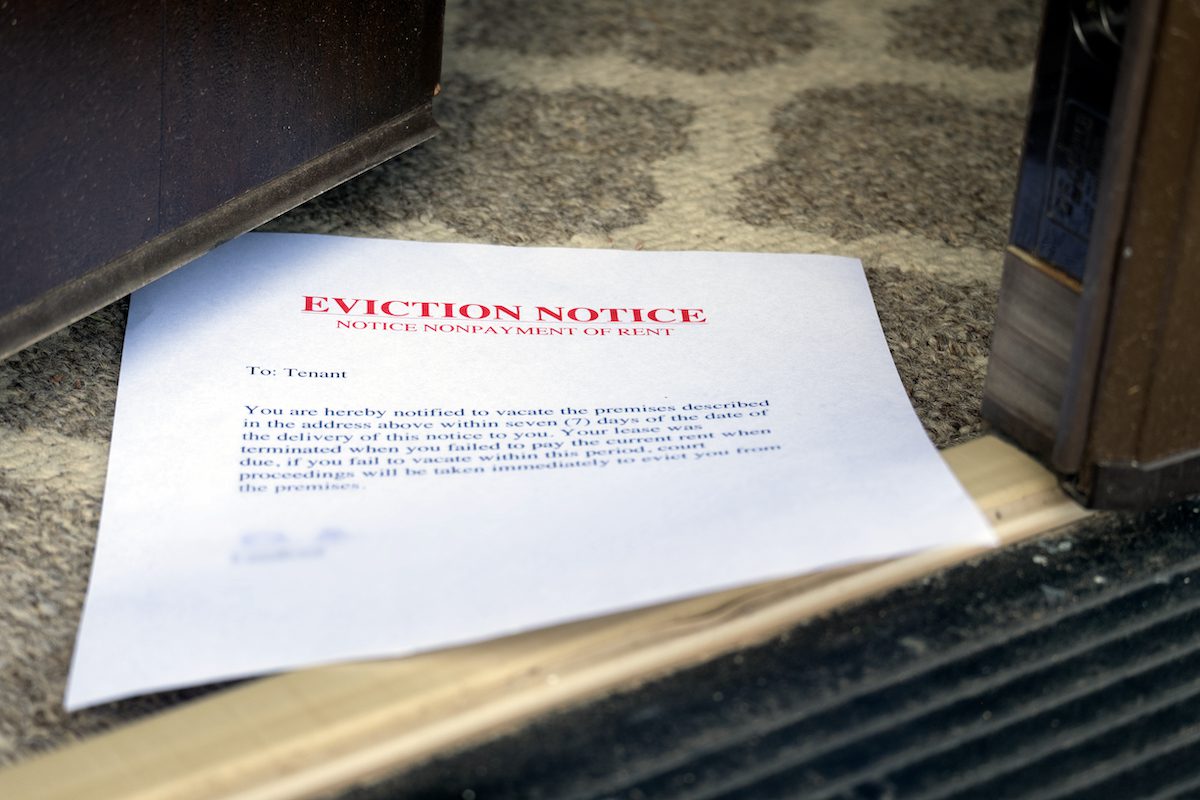Rental Rights: 8 Privileges All Tenants Receive
Tenant rental rights aren't just something landlords get to make up and offer, they're actually legal rights you're entitled to as a renter. However, there's always a risk a landlord isn't aware of your rights. They may try to deny you so you end up with a legal issue, or they may try to omit one to see if you notice. This is why you should always read your lease carefully.

All prospective renters should know the basic renters' rights you're entitled to when looking at rental properties. Current renters especially need to know their rights so they can fight for them if necessary.
Both state laws and federal laws work together to protect you as a renter. Do you know your legal rights?
1. The Fair Housing Act protects your rights against discrimination
The federal Fair Housing Act protects tenants from discrimination based on race, color, national origin, religion, sex, family status or physical disability. This means that your landlord cannot refuse to rent to you or treat you differently than other tenants because of any of these protected characteristics. They can't impose rent increases on you and not on other tenants, they can't refuse to make necessary repairs and they definitely can't serve you an eviction notice based on these qualities.
This act protects all rental agreements, so if you believe that you have been the victim of housing discrimination, you can file a complaint with the U.S. Department of Housing and Urban Development (HUD).
2. You have a right to a habitable home
This means that your landlord is responsible for ensuring that your rental unit is free of any health or safety hazards. If there are any issues with your unit that make it unsafe or uninhabitable, you should notify your landlord immediately so that they can take corrective action. It also means your landlord is responsible for making timely repairs once you've brought issues to their attention.
The maintenance request procedure is in the rental agreement
When in doubt about how to handle repairs, revisit your lease. All the directions for obtaining repair services are there, along with how to handle emergencies. Renters will most likely either have to contact their landlord directly or reach out to maintenance.
For emergency issues, especially those that make the home uninhabitable, most tenants will need to contact their landlord via phone to ensure they make contact quickly.
Lead-based paint disclosure
It's illegal for you to move into a house that has lead paint without your knowledge, but you can live there. Title X requires a landlord to disclose the existence of lead-based paint on the property before you sign the lease. While it's still a habitable home with lead paint, tenants must understand the risk of living with lead in the home. The Environmental Protection Agency has a pamphlet for landlords to hand out, although some state laws require additional materials are given to you.
Both the tenant and landlord then sign an EPA-approved disclosure form, which property owners must keep for three years. Failure to do this can result in a legal issue, where the property owner may end up paying a fine of up to $16,000.

3. Right to quiet enjoyment
It's a tenant's right to live in their rental unit without being disturbed by the landlord or other tenants. This means no unreasonable noise or disturbances.
You'll most likely have a process to follow to complain about noise or any other issues, which is better to use than taking any disputes to a face-to-face confrontation. You don't want to end up in a physical fight or argument.
If you're facing any issues with your neighbors or your landlord, it's important to first consult your lease agreement to see if there's anything that can help you resolve the issue. If not, you may want to reach out to an attorney or a local tenant's rights organization for assistance.
4. Right to privacy
You have a right to privacy in your rental unit and your landlord should not invade your privacy without just cause. This means that your landlord can't enter your home without giving you proper notice unless there's an emergency situation.
For most issues where your landlord would need to enter your home, they should give you 24-hours notice before entering the premises, even for repairs. You don't necessarily need to be home to get access, but you must know they're in the unit.
You also have the right to have any locks on your doors or windows replaced if they're broken by the landlord.
5. Your right to your security deposit
When you move into a new rental unit, landlords may require you to pay a security deposit. This deposit is to cover any damages that you may cause to the property during your tenancy beyond normal wear and tear. In most states, the amount of the security deposit can't exceed one or two months' rent.
Your landlord must return your security deposit to you within a certain timeframe after you move out, minus any damages caused by you or your guests. In addition to returning the payment for the difference, they must also provide a detailed list of what money, if any, they used for repairs. You can find all the details on the return process in your lease.
It's illegal for your landlord to not return your deposit, or keep any part of it for damages that were not actually caused by you. If this happens, contact an attorney. You can take legal action.
Check your state's renters laws on security deposits to learn more about your rights.

6. Your rights regarding eviction
If landlord-tenant issues escalate to where they're threatening eviction, they must have a legal reason for doing so. In most cases, landlords can only evict you if you fail to pay rent or violate the terms of your lease agreement.
If you're facing eviction, you get a hearing in front of a judge to contest it.
It's important to note that landlords can't evict you simply because they don't like you or for something you've done that's not highlighted within the lease. Renters can seek legal action in court should a wrongful eviction come your way.
7. Rules about service animals and pets
As part of the Fair Housing Act, rental housing must allow those with a service animal or an emotional support animal to bring their pet into the unit. Additionally, landlords can't increase your security deposit or charge a pet fee or pet rent for these types of animals.
Although certain tenants with service or support animals may have a breed that's on the restricted list, again, your landlord can't prevent your animal from coming into the rental. This is true even if the property isn't pet-friendly or doesn't allow pets.
It's best though, as a courtesy, to mention you have a service or support pet when you're filling out a rental application, just so everyone is aware from the start.
8. Rights against retaliation
Another component of landlord-tenant laws, landlords can't take any action against a tenant in retaliation for exercising their legal rights. This means they can't begin the eviction process, raise your rent or penalize you for complaining about hazards in your unit. They also can't take action against you for reporting them to the authorities.
Know your tenant rights
The best way renters can protect themselves while living in a rental property is by understanding their rights. When moving to a new area, make sure you review landlord-tenant law to maintain access to all your rights. Then, you'll know what to look for in your lease agreement, which you should definitely read carefully. You'll also be able to advocate for yourself against any landlords who are trying to deny you your rights.
